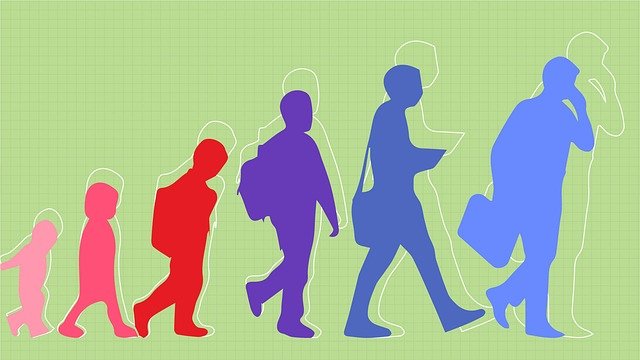Introduction
Welcome to Human Growth Day. After today you will be able to describe the changes to humans as they develop from conception to childhood.
The Human life cycle
Humans belong to the animal kingdom and are characterised by:
1. Their nervous systems
2. Their ability to move
3. Their ability to reproduce sexually
4. Eating plants and animals
The human body is a highly complex organism that not only carries out the life processes common to living things but has also developed the ability to make decisions and carry out actions. Other animals have not developed in the same way or to the same extent as humans. The human body has a number of systems that help it to maintain itself, grow, develop and reproduce, these include the circulatory system, the digestive system, nervous system and respiratory system.
There are six stages in the human life cycle:
1. Foetus
At this time, a baby is growing inside its mum’s womb.
2. Baby
A baby is born after spending nine months inside the womb.
3. Childhood
At this stage, you learn to walk and talk.
4. Adolescence
Children become teenagers.
5. Adulthood
Your body is fully developed.
6. Old age
The last stage in the life cycle of a human.
Today we are going to look at the first three stages: foetus, baby, and child.
(Note: The absolute correct spelling is foetus but in North America it is commonly spelled fetus instead.)
1: Development and growth – the foetus
BabyCenter – foetal development week by week.
Activity: You are going to make a Foetus Book. It will need 12 pages to include a cover. Use the pictures and statements on the handout to complete the pages for each 4 week interval. Draw each one of these to size in your book or on paper / tissue, and cut them out. If you don’t know what they look like find a picture or look in the fridge.
- Week 4: Poppy seed (1mm)
- Week 8: Kidney bean or grape or raspberry (1/2 inch or 1.6cm)
- Week 12: Small lime or plum (2 inches or 5.4 cm)
- Week 16: Avocado (4 1/2 inches or 11.6cm)
- Week 20: Coconut or Banana (6 1/2 inches or 16.3cm)
- Week 24: cantaloupe (12 inches or 30cm)
- Week 28: Large eggplant (15 inches or 37.6cm)
- Week 32: Jicama or squash (16 3/4 inches or 42.4cm)
- Week 36: Large romaine lettuce or squash (18 1/2 inches or 47.4cm)
- Week 40: Pumpkin or jackfruit (20 inches or 51.2cm)
Foetus – Myth or Fact!
Explore the myths and facts of foetal development.
If it's a fact its generally accepted as true with the science that we so far know.
If it's a myth it may be that lots of people believe it, and it might indeed be based loosely in truth, but there is simply no evidence to support it as a fact right now.

2 & 3: Development and growth – from baby to child
Activity: Match the statements to the age ranges using the information you have learned.
Wrap up
To end today I want you to think of some memories and write them down. You could write them in a journal or diary, in an email, or even draw some pictures. These are the memories I want you to think of:
- What is your earliest memory
- What is your happiest memory
- Which memory makes you laugh the most
- If you had a special ability to go back in time for 1 day, which memory would you visit?

